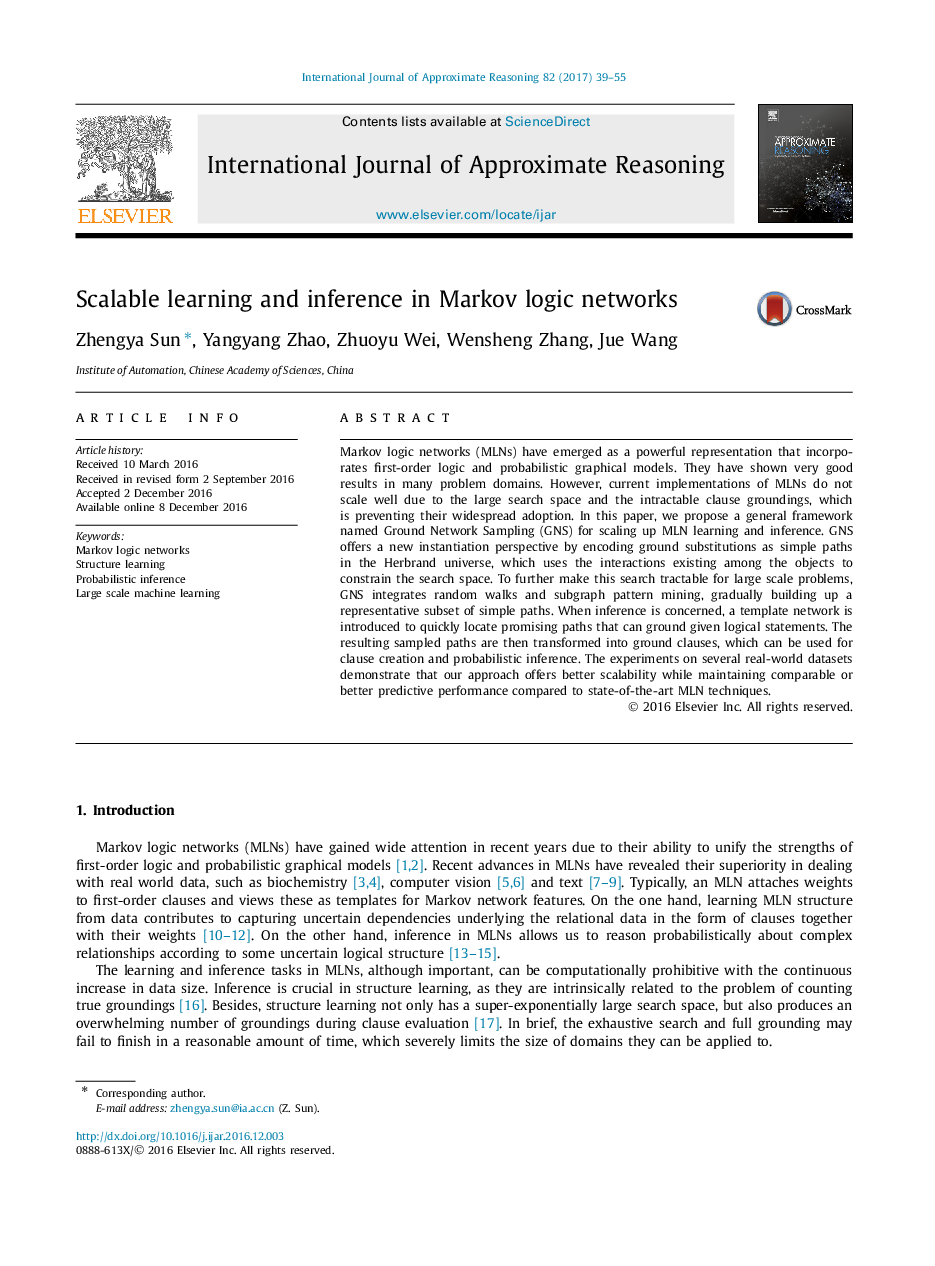| Article ID | Journal | Published Year | Pages | File Type |
|---|---|---|---|---|
| 4945309 | International Journal of Approximate Reasoning | 2017 | 17 Pages |
Abstract
Markov logic networks (MLNs) have emerged as a powerful representation that incorporates first-order logic and probabilistic graphical models. They have shown very good results in many problem domains. However, current implementations of MLNs do not scale well due to the large search space and the intractable clause groundings, which is preventing their widespread adoption. In this paper, we propose a general framework named Ground Network Sampling (GNS) for scaling up MLN learning and inference. GNS offers a new instantiation perspective by encoding ground substitutions as simple paths in the Herbrand universe, which uses the interactions existing among the objects to constrain the search space. To further make this search tractable for large scale problems, GNS integrates random walks and subgraph pattern mining, gradually building up a representative subset of simple paths. When inference is concerned, a template network is introduced to quickly locate promising paths that can ground given logical statements. The resulting sampled paths are then transformed into ground clauses, which can be used for clause creation and probabilistic inference. The experiments on several real-world datasets demonstrate that our approach offers better scalability while maintaining comparable or better predictive performance compared to state-of-the-art MLN techniques.
Related Topics
Physical Sciences and Engineering
Computer Science
Artificial Intelligence
Authors
Zhengya Sun, Yangyang Zhao, Zhuoyu Wei, Wensheng Zhang, Jue Wang,
